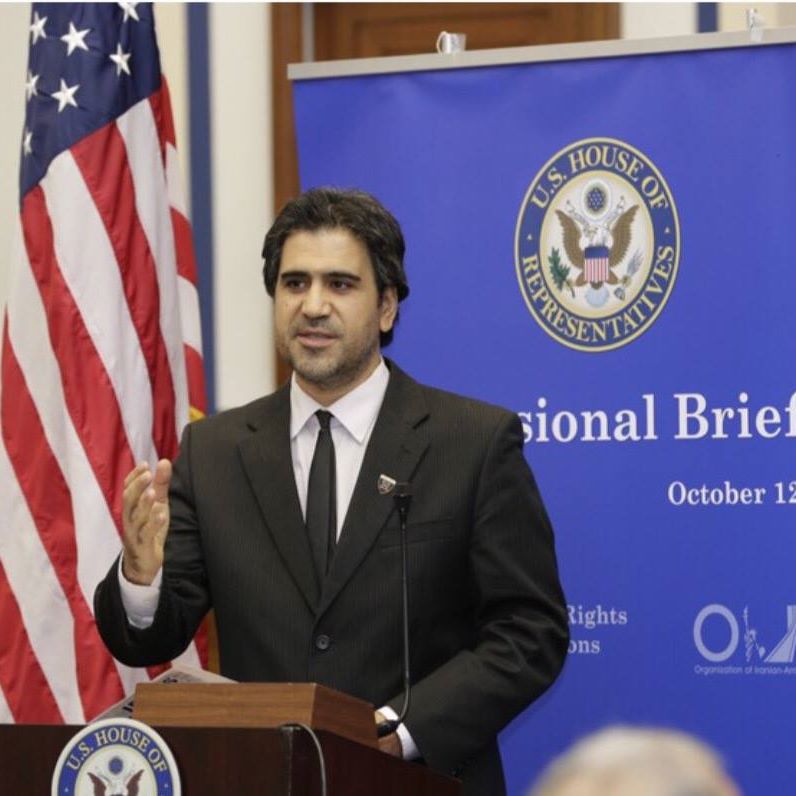EU’s appeasement of Iran counterproductive and doomed to fail
د. ماجد ربيزاده: استرضاء الاتحاد الأوروبي لإيران سيأتي بنتائج عكسية ومحكوم عليه بالفشل
Dr. Majid Rafizadeh/Arab News/February 17/19
The EU is continuing to pursue its soft policies toward the Iranian government. The EU’s latest appeasement moves toward Tehran include charting paths to trade with the regime and skirt the US’ sanctions.
The prominent European leaders who are in favor of marching forward with such policies are Federica Mogherini, the EU’s high representative for foreign affairs, French President Emmanuel Macron, British Prime Minister Theresa May, and Germany’s Chancellor Angela Merkel.
One of the major arguments articulated by the EU for supporting such appeasement policies is grounded in the reasoning that the bloc would be capable of curtailing or making Iran abandon its nuclear ambitions if it helps Tehran with sanctions relief, bringing about more revenue and trade, and helping the Iranian leaders bypass the US sanctions.
The major pitfall in this line of argument is the fact that Iran has not moved in that direction. In fact, several high-level politicians in Iran have directly or indirectly touched on the regime’s nuclear objectives. For example, in a recent interview with Iran’s Channel 2, Ali Akbar Salehi, the head of the Atomic Energy Organization of Iran, made it clear that the Islamic Republic is exploring new uranium enrichment programs and the production of centrifuges. Salehi boasted: “Thank God, the tests on the IR4 and IR2M (centrifuges) have been completed. They were tested for over 12 years. Today we have all the data, and we can easily manufacture them on an industrial scale.” Iran is also on the threshold of modernizing its mechanism to produce highly enriched uranium, which can be utilized to build a nuclear weapon.
The second shortcoming in the EU’s argument is the fact that Tehran views the Joint Comprehensive Plan of Action (JCPOA), commonly known as the Iran nuclear deal, as a temporary and transitory deal. But, from the European leaders’ perspective, it is going to be transformational.
To put it simply, the EU believes that maintaining the sanctions relief under the JCPOA will fundamentally alter Iran’s nuclear ambitions, while the Iranian leaders believe that gaining more revenue from the sanctions relief can help them achieve their nuclear ambitions in the long run. That is why Salehi surprisingly admitted recently that the JCPOA is a means to an end, not an end to the nuclear program. “Our only limitation is that in the period referred to in the JCPOA — in the first 10 years of the agreement — we can only use IR1 (centrifuges) for enrichment. When the period is over, we will be able to use our new centrifuges. You see? This is the limitation. We are enriching (uranium) right now,” he said.
The third issue is that Iran has not substantially scaled back its nuclear activities, including research and development, after almost four years of the JCPOA’s sanctions relief and increased trade. In fact, the Islamic Republic is currently in a much better position to achieve its nuclear objectives. As Salehi acknowledged: “If we have to go back and withdraw from the nuclear deal, we certainly do not go back to where we were before … We will be standing in a much, much higher position.”
Iran’s ‘nerve center,’ which is reportedly responsible for designing a nuclear bomb, has been continuing its work.
The Islamic Republic has also not halted its attempts to obtain illicit nuclear technology. During the time that the EU intensified its appeasement policies toward the ruling mullahs, Germany’s domestic intelligence agency revealed that the Iranian government had been pursuing a “clandestine” path to obtaining nuclear technology and equipment from German companies “at what is, even by international standards, a quantitatively high level.”
A credible report also showed that Iran’s “nerve center,” which is based in the Parchin military site and is reportedly responsible for designing a nuclear bomb, has been continuing its work. This information was first revealed by the Iranian opposition, the National Council for Resistance of Iran, which also previously disclosed Iran’s clandestine nuclear activities in two major sites, Natanz and Arak. Frank Pabian, an adviser on nuclear non-proliferation matters at the Los Alamos National Laboratory, has told the New York Times that the NCRI is “right 90 percent of the time.”
Even if we accept the EU’s reasoning that sanctions reliefs will prevent Iran from pursuing or achieving its nuclear ambitions, is it really considered an informed policy to appease a rogue state in order to prevent it from becoming even more dangerous? Such policy is doomed to fail because it is capitulating to a dangerous state out of fear. The EU seems to be evading adequately addressing the problem, as well as holding the regime accountable and responsible for its actions.
Finally, appeasing the Iranian regime in order to prevent it from building nuclear weapons is totally counterproductive because it sends a strong message to the Iranian leaders that continuing their nuclear path will give them more leverage and advantage over the international community.
• Dr. Majid Rafizadeh is a Harvard-educated Iranian-American political scientist. He is a leading expert on Iran and US foreign policy, a businessman and president of the International American Council. He serves on the boards of the Harvard International Review, the Harvard International Relations Council and the US-Middle East Chamber for Commerce and Business. Twitter: @Dr_Rafizadeh




















